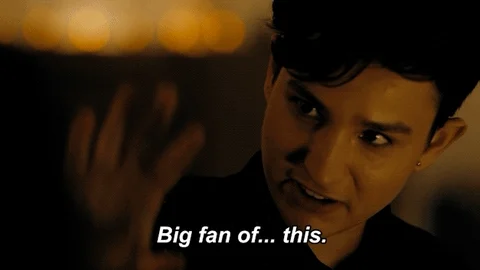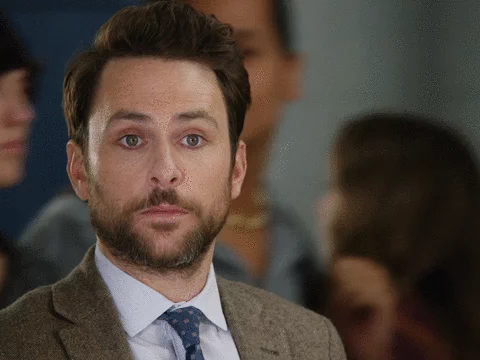
I always have to post that Cat and Girl comic in threads like this (see above).
Now, if you’ll excuse me, I’m gonna go dig into some agribusiness mass market cookies to comfort myself!

I always have to post that Cat and Girl comic in threads like this (see above).
Now, if you’ll excuse me, I’m gonna go dig into some agribusiness mass market cookies to comfort myself!
And this is a broken digital clock that is right once a day.
You’re not entirely wrong, but this isn’t a pure economic question - just as poverty isn’t that either. Poverty also generally entails less access to diverse skills and experiences with everyday tasks like cooking, simply because society forces you to spend more hours working, and your off time exhausted and incapable of doing more than basic self-care.
So, poor people are eating the best they can with what they can afford and what they know how to and have time to prepare. General knowledge on cooking plant-based foods as anything but side dishes and accompanyments to meat is nearly nonexistent in the Western world due to the century of meat-promoting policy I mentioned above - despite meat-centric diets being quite rare even a century ago. We have lost a lot of basic skills and societal knowledge of how to prepare delicious, nutrutious plant-based food over the past century of centralized promotion of industrialized meat production.
Of course, middle class (and above) vegans aren’t exactly helping in this regard, given the general focus on flashy trend food, expensive or rare ingredients, as well as diets and explicitly “healthy” food (a significant proportion of which is pure BS) rather than popular education and proliferation of knowledges and skills needed to shift diets in a less meat-centric direction.
Cooking and eating largely plant-based meals that taste great and provide everything a human needs in terms of nutrition can be both affordable and relatively simple - but getting there, giving people the necessary skills and knowledges to do so, is anything but simple.
No, her point STILL stands, because most working people are laboring at a couple of jobs, caring for their kids, and probably their parents, too, often without transport (so it’s public transit), often living in a food desert, with no access to good quality food.
So, can we stop poor-shaming here, and get back to bashing Dr. Oz? He’s the one who deserves to be shamed, not the working poor that are doing their best to get through the fucking day without some people with far more means and options sneering at them for their lack of ability to eat better…
TLDR, see above comic.
If you read what I was saying as anything even remotely poor-shaming, you really need to re-read. I was saying that the post I responded to was rather oversimplifying things by saying poor people are eating the best they can with what they can afford, as what you can afford is just one of many, many problems intrinsic to poverty. The entire point was literally that poverty is far more complex than just not having enough money, and the entire question of what foods are “affordable” is a red herring that leads to fundamentally unproductive discussions.
Once again, certain foods being accessible and affordable is a major part of the problem, at the heart of it. We heavily subsidize cheap food that isn’t great for you, and drive up the cost of healthier foods to make it a luxury item, so that one class can have yet another way to look down on the “poors”. That matters. Just because the reasons behind is a complex set of problems doesn’t negate this core point. ![]()
I mean, yes, nearly every single major problem in our society is pretty complicated. We know. That doesn’t make pointing out the obvious wrong or problematic.
But … I never said that it did? I was adding to what was said, not contradicting or negating it. Trying to reduce the problems of poverty down to what is or isn’t affordable is part of why fighting it is so damn hard, as that is just one part of a complex, multi-part problem, where changing a single variable is typically not enough to change the overall picture. If we are to have any hope of real change, we need to maintain complex, intersectional views of problems that are inherently complex and intersectional.
I’d still argue that poverty is the heart of the issue and should be the focus on the issue, but…

Food deserts are a thing, as is being ‘food insecure’; and you’re absolutely right - it is a matter of poverty, at the core.
That was my first thought. Right now in my life I have the luxury of being able to eat according to my values, so any meat I buy (except the occasional package of Nathan’s hotdogs, OMG, yum) is from small local organic farms. These farms receive no federal subsidies, those go largely to big agribusiness, yet the meat costs only 1.5 - 3X as much as the factory farmed versions. Nothing close to $90/lb. He’s just showing how out of touch he is.
I don’t think he’s campaigning on this now, it was a quote from a long time ago. Too bad, though, like others have said, I’d like to either remove or shift our government subsidies. Not that I’d vote for this joker, ever, but it would be nice to have the conversation of subsidies enter the political debate.
Different scenario, but I’ve asked this about food stamps/SNAP benefits before, why they can be used for foods that have zero nutritional value (sugary sodas was my example). I learned that anytime public-health-minded groups try to push this idea, a couple things happen. Of course, lobbyists for those producers come out heavy, and advocates for the poor bring up the notion of rights, that just because people are receiving public assistance we shouldn’t be able to tell them what they can and can’t buy.

Maybe at Wegner’s.
But not at places that actually exist.
That was the first gif that came to mind ![]()
The other, but I don’t think it’s a gif, is the scene from 30 Rock where Jack is trying to negotiate with his nanny by talking about the price of potatoes and says something like a pound of potatoes costs $200.
As well they should. Engaging with any “welfare” system in the western world is already running a gauntlet of dehumanising and privacy-destroying bureaucracy, designed on the premise that you are a moral failure for being poor, and making you jump through endless hoops to show just how obedient and deserving you are before the slightest bit of help is dispensed. Adding another level of moralistic finger-wagging to it is just to heap cruelty upon cruelty.
Oh, I agree.
Back when I was asking that question I was in college and just learning about a lot of these issues. It was eye opening.
Locally we have really great programs that incentivize buying healthy options (you get 2 for 1 if you’re using EBT at the farmers markets, for example) without limiting what people can spend on. If anything, that seems like a decent, humane way to address the nutrition question.

And if either of you had actually read the posts you’re responding to, you’d maybe realize that what you’re saying is in no way in opposition to what I’m saying. Poverty is the entirety of the issue. My point is that poverty is not only a lack of money, which seems to be the sum total of what you’re making it out to be. Poverty is a large-scale, systemic, multi-factor form of oppression.
A lack of money is the basal symptom of any individual instance of poverty, and changing that can indeed change a lot in that specific instance (and to some extent also surrounding instances), but this is an approach that fundamentally lacks any perspective on time and lived experience, and that thus ignores the long-term effects of poverty on those living under it. Meaning that changing that variable alone is fundamentally insufficient when it comes to making lasting, real-world change. That obviously doesn’t mean that changing the economic situation of people isn’t crucially important - it very obviously is - but that at the same time we also need to work towards improving other symptoms and effects of poverty.
Which brings us back to where this all started: ending food deserts is obviously very important. But doing so and making healthy plant-based foods affordable and easily available to people living in these conditions won’t change anything if these people don’t know how to cook these foods, and don’t have the time or energy to learn to do so. Making options available to people whose lives don’t afford them the luxury of considering those options is useless.
If you’re working two or three jobs to cover rent and food expenses and find that you can suddenly afford healthy, nutritious, plant-based foods thanks to a new grocery store opening, but you don’t have the knowledge, skills or time to cook those foods, what are you going to do? You’ll obviously keep eating whatever it is you’ve already been eating, because that’s simple, convenient, and you’re already fitting it into your day. If we want to make meaningful change, we need to acknowledge the entirety of how these problems intersect with actual folks’ actual lives, and not stick to naïve approaches like what you’re insisting on here.
Well, okay then. Enlighten little old naïve me with your superior insights.